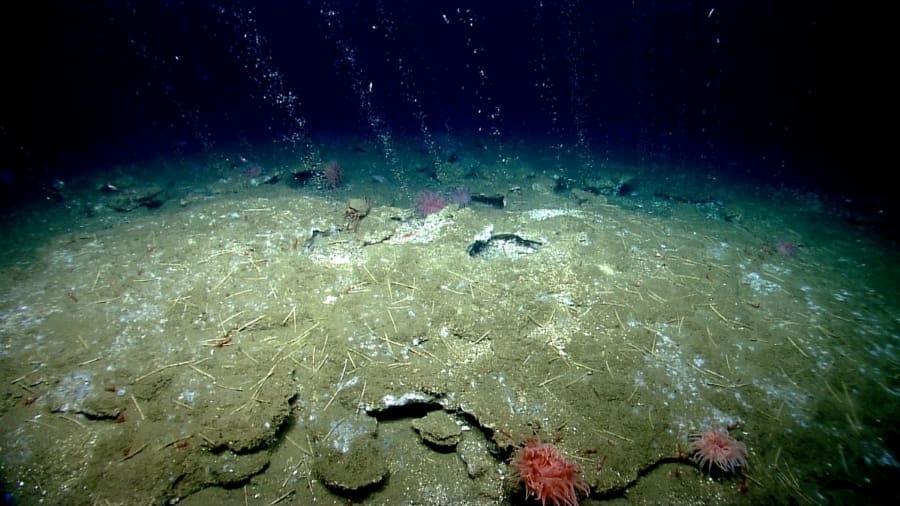By Royal Netherlands Institute for Sea Research
Methane, a strong greenhouse gas that naturally escapes from the bottom of the North Sea, is affected by the pressure of high or low tide. Methane emissions from the seafloor can be just easily three times as much or as little, depending on the tide.
This is shown by NIOZ oceanographer Tim de Groot, in an article published in Nature‘s journal Communications Earth and Environment. “Our research shows that you can never rely on one measurement when you want to know how much methane escapes from the seafloor,” De Groot emphasizes.

Swamp gas at sea
Methane (CH4) is a particularly strong greenhouse gas. Among other sources, it is produced when plant remains and other organic material in the bottom of a swamp or a canal, but also in the bottom of the North Sea, is broken down by bacteria, in the absence of oxygen. In the case of the North Sea, this involves old layers of organic materials at a depth of up to 600 meters in the seabed, which is converted by bacteria into methane. And like from a muddy canal that you poke into with a stick, that methane can also escape from the sea floor when the pressure gets high enough.
Large variation
To close the books on all sources and sinks of greenhouse gases, it is important for climate science to know how much methane is coming out of the seafloor and, more importantly, how much of that powerful greenhouse gas reaches the atmosphere. De Groot now cautions against jumping to conclusions in that research.
Measurements at a bubbling methane source at a depth of forty meters, near the Dogger Bank which is located roughly between Denmark and Scotland, showed that considerable variations can occur. Not only do methane emissions differ between summer and winter, but high and low tides also appear to have a robust influence: emissions can easily be three times higher or lower depending on the tide. “If you don’t take this effect into account, you will probably over- or underestimate the methane emission from the sea bottom,” says De Groot.
Bacteria eating methane
In summer, when the water is slightly calmer and warmer and different temperature layers can be seen, measurably less methane is released from the water into the air above it. De Groot attributes this phenomenon to the activity of yet other bacteria, that actually consume methane and then emit it as the less potent greenhouse gas CO2. “In summer, the water is calmer, and the methane is more concentrated in the lower layers. Bacteria then have more time to convert the gas into water and CO2”, De Groot says.
Warning colleagues
One cannot really influence the amount of methane escaping from the soil or being cleared by bacteria in seawater. Nevertheless, De Groot notes that the warming of the climate, in this case has a positive effect: “In warmer waters, more methane is consumed by bacteria. On the other hand, increasing storms may enhance the amount of methane that escapes to the atmosphere.”
The research by De Groot and colleagues is therefore primarily a warning to colleagues in science. “If you take too few measurements and then only during high tide or in the summer, you could easily conclude that the amount of methane from the seabed is not that bad. You can only get an adequate picture of the emission of this greenhouse gas if you take regular measurements, preferably in different seasons,” says De Groot.
More information: de Groot, T.R., Menoud, M., van Bleijswijk, J. et al. ‘Tidal and seasonal influence on cold seep activity and methanotroph efficiency in the North Sea’, Communications Earth & Environment (5, 368; 2024); DOI: 10.1038/s43247-024-01483-8 | NIOZ Press Release/Material. Featured image credit: Sime Basioli | Unsplash




